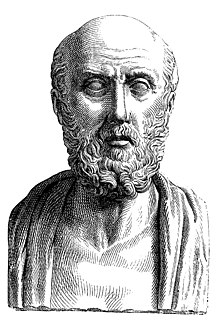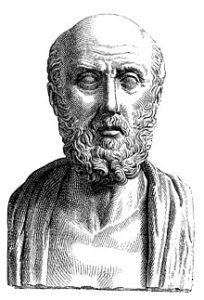

Yesterday, I published retired doctor Ted Levy’s critique of the Hippocratic Oath and the University of Minnesota Woke Oath. As promised, here is his suggested replacement, one that is much more consistent with freedom.
A Libertarian Medical Oath
We stand at the beginning of an important professional journey that for most of us will last a lifetime. We will, as physicians, daily face a sad professional truism: We typically see people at their worst. Few people want to be ill or suffer. Yet virtually every patient we see is ill or suffering. We accept our role, as physicians, to heal when we can, relieve pain as much as possible, and advise our patients on how to improve their situation as they see it.
Medical study involves the function and structure of human organ systems, and all that can go wrong with them. But such knowledge does not allow us to tell others not trained in this art what they should do. Life intrinsically involves risk, and even when we share our knowledge, others may make choices that we would not. We can guide people to make the best health choices consistent with their life goals, but we do not and cannot choose those life goals for them.
Ours is a life of service and we are proud, as are many people in other fields, to earn a living by charging for our services. We would prefer that the government not interfere in the financial relationship between doctor and patient, because we learned “he who pays the piper calls the tune” and prefer to listen to our patients’ maladies rather than our political leaders’ squalls when it comes to peoples’ health and choices.
We have learned about the amazing power of pharmaceuticals in relieving pain and condemn efforts by politicians and regulators to distort the doctor-patient relationship by preventing us from helping relieve our patients of unrelenting, joy-destroying pain.
We have learned about the potential benefits of mind-altering drugs in treating depression, anxiety, or the simple drudgeries of life and implore the government to stop arresting people who choose to find solace and bliss with them. The War on Drugs has harmed both patients and doctors since its inception.
We ask that every effort be made to list as many medications as possible as “over-the-counter.” This will lower costs, improve competition, and increase availability.
Recent decades have greatly expanded mankind’s knowledge of human health. But we recognize that improved knowledge does not justify mandates or prohibitions and it most certainly does not justify “noble lies.” Any physician who uses a public platform to engage in such lies is to be condemned.
We demand that the FDA and the CDC be restricted to making recommendations, not legally enforced demands. The enormous costs and significant delays in introducing life-saving medicines to market caused by FDA regulations have caused more deaths than they have saved.
As physicians, we are proud of the many skills and the large body of knowledge we have mastered. But we are also aware that much of what physicians are asked to do can be done well without having to master all of that. Onerous restrictions on the use of physician assistants, nurse practitioners, and other healthcare assistants should end. Artificial restrictions on their extent of practice should be minimized. Patients benefit from a greater supply of healthcare providers.
Economists have long recognized that the main benefit of medical licensure is to restrict physician supply and increase doctors’ incomes. This harms patients and must end. If not for supply restrictions demanded by special interests, methods to increase the supply of healthcare providers could be easily achieved. These methods include automatic reciprocity of medical licensure as well as the increased use of telemedicine. Competent physicians in Maine should not be forced to spend months filling out paperwork to be allowed to practice medicine in Montana. The best surgeon in London should not be required to repeat a residency to practice in Los Angeles. A physician in Phoenix needs only an Arizona medical license to see a patient visiting from Fremont. He shouldn’t also need a California medical license if the patient instead sees him on a computer screen rather than face to face.
Although medicine and medical results improve yearly, there are no cure-alls, no panaceas. But history shows and economic theory confirms that virtually all government interventions preventing patient and doctor from defining mutually agreeable terms of service are the cause of virtually all healthcare difficulties, and that eliminating such interventions is as close to a silver bullet as we can achieve in this world.
Ted notes that the last sentence is an exaggeration but it is an oath, and so he thought he could take liberties, so to speak.

READER COMMENTS
MarkW
Dec 17 2022 at 10:21am
I hadn’t know of all the regrettable things in the original Hippocratic Oath, so the previous post was enlightening. This new ‘freedom oath’ is excellent and in a sane world it would be little more than common sense — rather than the dreamy utopianism it feels like with our current state.
Walter Donway
Dec 17 2022 at 2:50pm
As an advocate of Objectivism, I agree with every point made in the new oath. And the points are very well put. Of course, the Hippocratic Oath is not mandatory, as I understand it, and other pledges are used at other medical schools. This proposed oath really involves signing on to an extensive political agenda. I agree that all the elements of the oath do tend to promote the most favorable doctor-patient relationship and are in the best interests of the patient. But I think this is more of a party platform–or a petition–than an oath. Still, it has heuristic value. Possibly the new physician’s right hand could be on “Atlas Shrugged.”
steve
Dec 17 2022 at 8:02pm
This is pretty awful. Way too long and way, way too preachy, just a wish list and not at all concentrating on the future career of a young doc. This is what I would expect of some middle aged or older guy to write who wants to preach to a bunch of young people. Personally, I think the idea of an oath is antiquated and should be done away with. If there is one it should be concentrated on the practice of medicine and the behaviors expected of the physician during their career. Not really the place to rant about government policies with which you disagree.
To be fair there are good ideas. We need to do away with the idea of states controlling licensing and make it universal. I like the idea of more telemedicine but it is largely inhibited by insurance companies not wanting to pay for it. Are you proposing we make insurance companies pay?
” We can guide people to make the best health choices consistent with their life goals, but we do not and cannot choose those life goals for them.”
This seems very similar to the woke oath saying you should respect indigenous and alternate medicine just maybe a bit more bread?
Just curious in case Ted really is a practicing doc. Do you work with med students/residents? Did you? As you know we largely mandate that health care workers have flu shots to decrease their risk of getting the flu and also to make it less, a bit, likely to transmit to pts. Do you oppose that mandate? What would be your plan if we were short on staff as a result of not enough people getting vaccinated? We mandate members of the military get vaccinated to minimize their not being available due to illness. Do away with those also?
Steve
Mactoul
Dec 18 2022 at 8:25pm
A manifesto rather than an oath. He isn’t saying what he will do or not do. And with medicine in great controversy these days– what with gender affirmation, mental health, drug addiction, not to mention the everlasting abortion, a rather noncommittal manifesto.
Comments are closed.